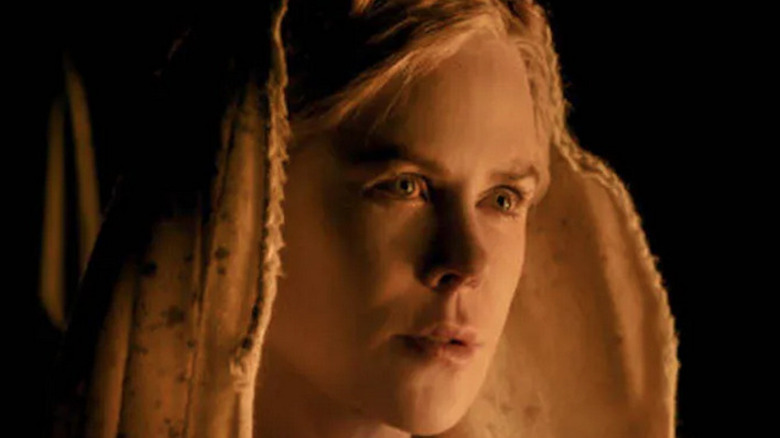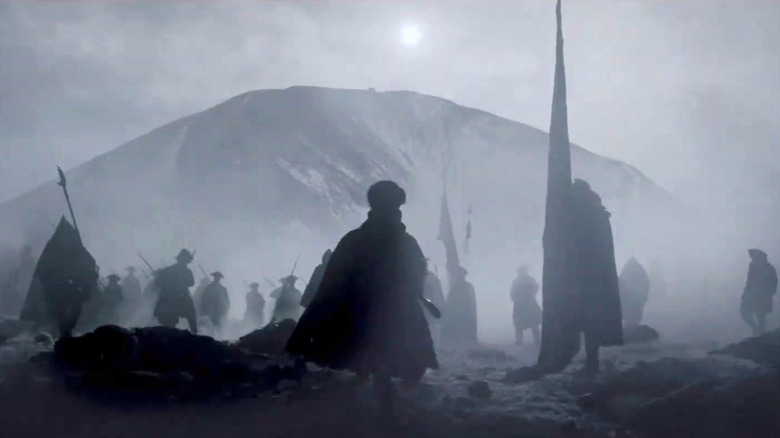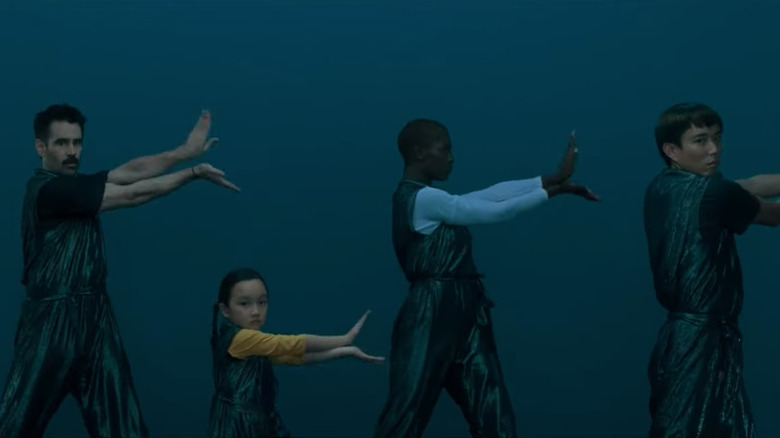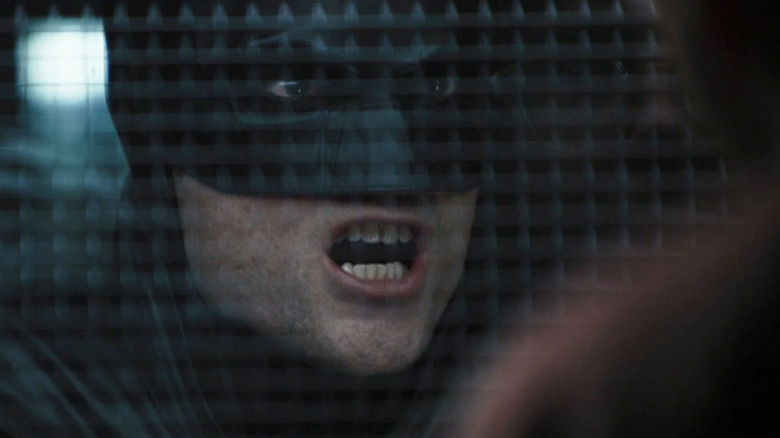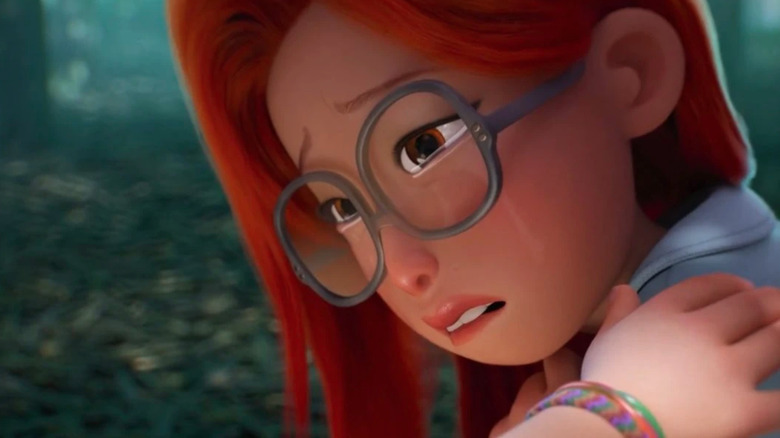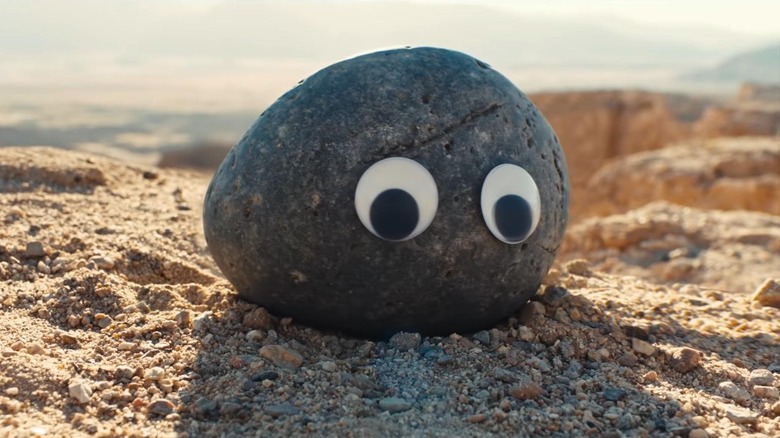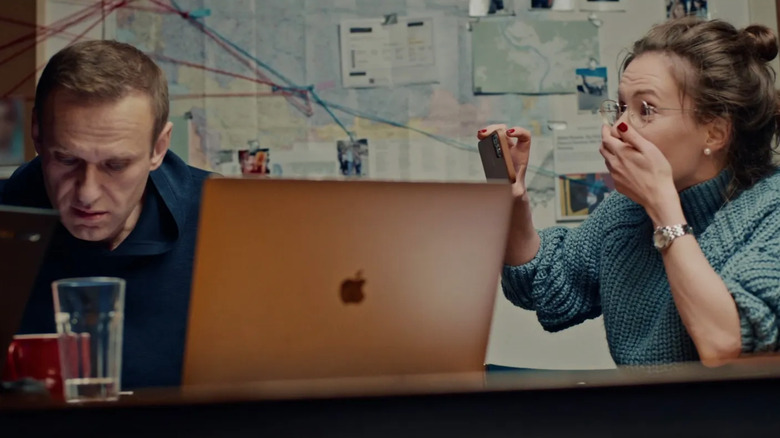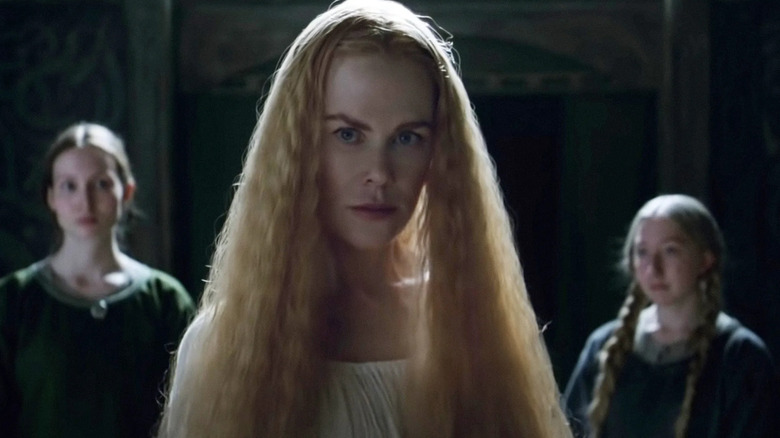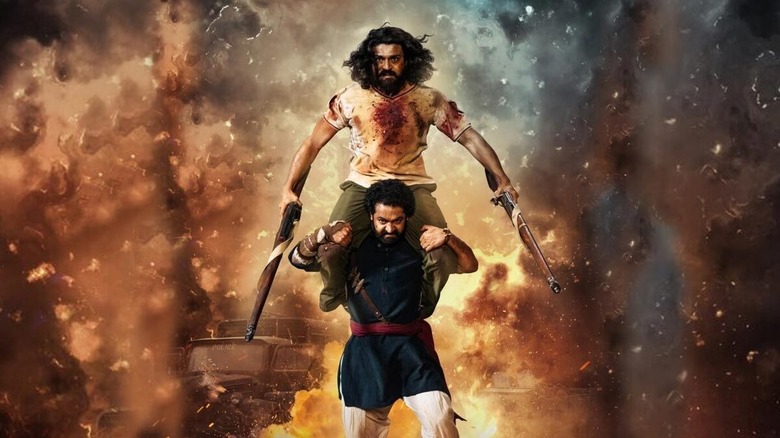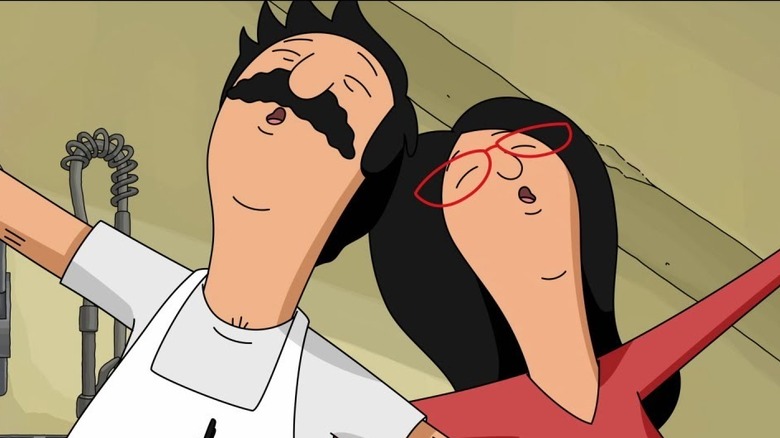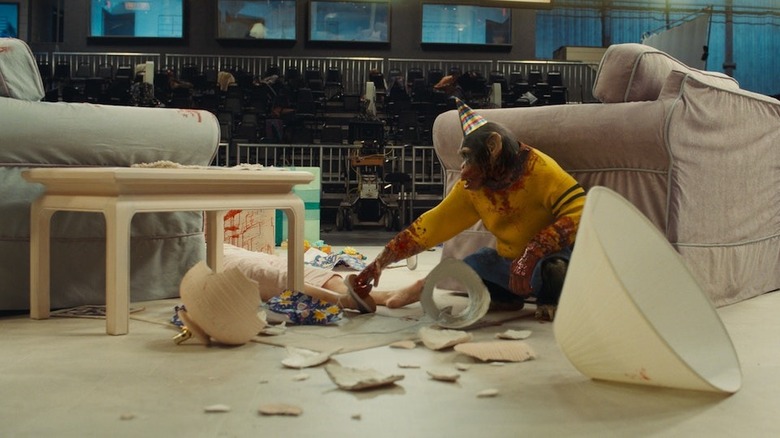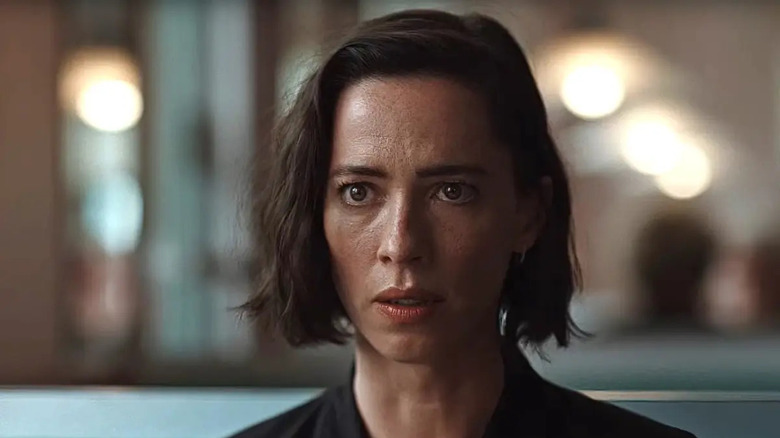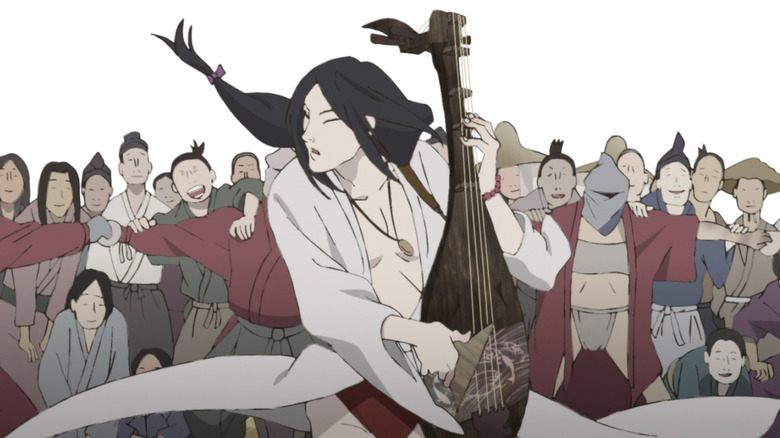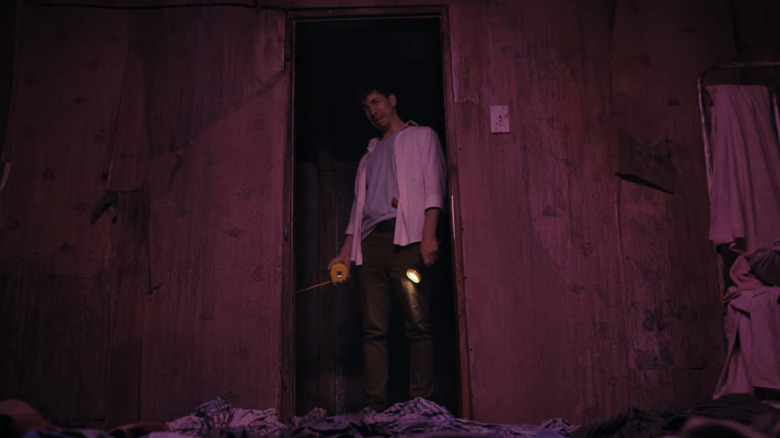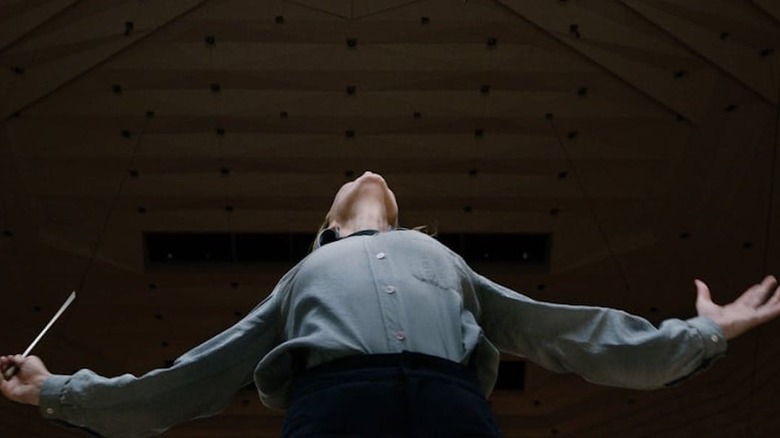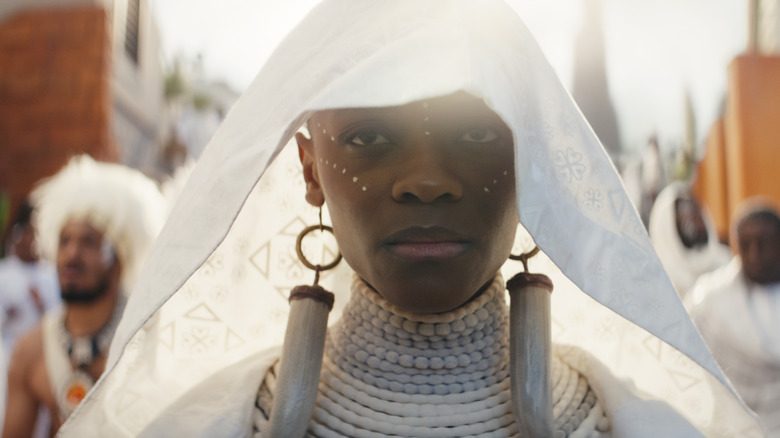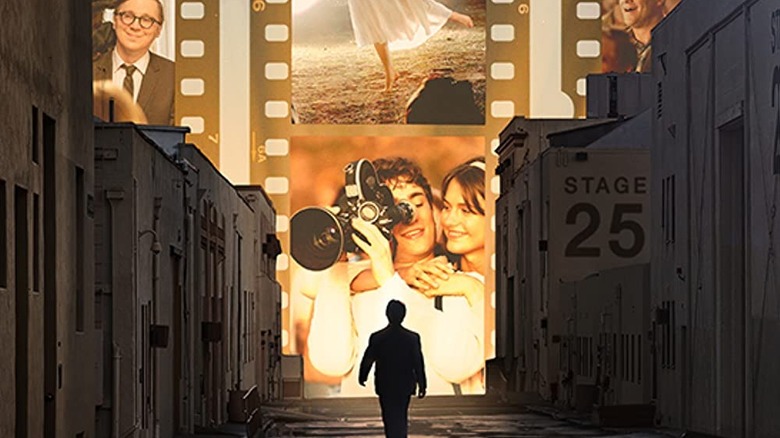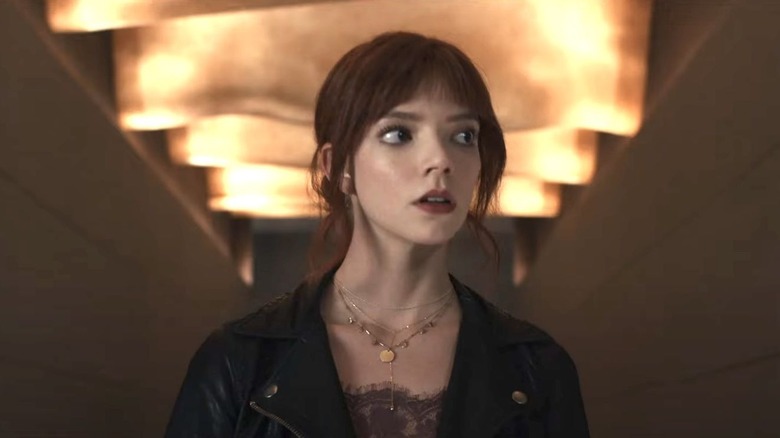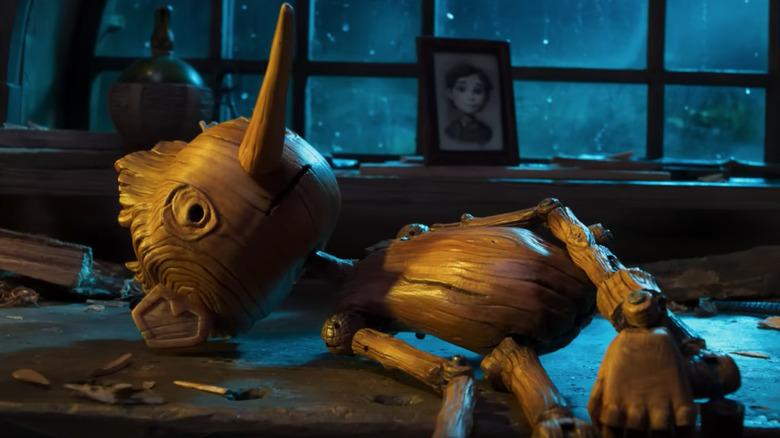The Most Flawless Movie Scenes Of 2022
2022 is already shaping up to be a great year for movies, and the year is still far from over. Between big-screen experiences and streaming exclusives, popular blockbusters and hidden gems, there have been some powerful reminders of why we love cinema as both entertainment and an art form. Have any of these films been perfect? Of course not; true perfection is impossible. However, one can definitely make the case that certain stand-out scenes from various movies this year have been either perfect or as close to perfection as possible.
The scenes on this list kept audiences on the edge of their seats, moved them to tears, made them crack up in laughter, or, in some very special cases, pulled off multiple conflicting emotions all at once. Some offer a single moment of greatness that elevate their respective films, while others exemplify everything that was already great about them. These 2022 movie scenes perfectly achieve what they set out to do, and promise to stick in your memory for a long time after.
This article contains spoilers for all the listed films.
Cyrano: Wherever I Fall
While given a bare minimum qualifying release for awards in 2021, the commercial release of "Cyrano" was delayed until February 25, 2022, and as such, we're counting it as a 2022 film. This musical adaptation of Edmond Rostand's "Cyrano de Bergerac" earned high praise for its performances, particularly that of Peter Dinklage in the leading role, but critics were a bit more divided on the musical numbers. However one feels about the film's many repetitive love ballads, there's one song (and corresponding scene) in "Cyrano" that stands out as truly exceptional.
"Wherever I Fall" is first sung by three soldiers, each writing letters to their loved ones while preparing themselves to die on the battlefield. The chorus of the song turns into a marching anthem in the ensuing battle, wherein Christian is killed and Cyrano barely survives. "Tell 'em not to cry at all," the lyrics might say, but it's pretty hard not to be moved to tears by this powerful portrayal of the tragedy of war.
Petite Maman: The music of the future
"Petite Maman" is another film that qualified for 2021 awards but makes this list because it wasn't given a proper American release until April 22, 2022. This heartfelt fable is about Nelly, an 8-year-old girl who, while visiting her mother's childhood home following the death of her grandmother, magically makes friends with another young girl named Marion. Marion turns out to be a time-displaced version of her mother. Running a compact 72 minutes, it slowly builds to an emotionally overwhelming conclusion just as powerful as that of director Céline Sciamma's previous film, "Portrait of a Lady on Fire."
Like "Portrait...," "Petite Maman" uses music extremely sparingly, and both movies' climaxes gain additional power by being the rare scenes to feature music. Nelly lends Marion her headphones to listen to "the music of the future," which becomes the gorgeous aural accompaniment to the two friends' final day of playing and exploring together.
After Yang: Opening credits
Writer/director Kogonada might specialize in solemn, meditative dramas, but he sure knows the value of starting things off with a fun dance party. The dance party opening theme to the Apple TV+ series "Pachinko," which Kogonada co-directed with Justin Chon, is one of the best series openings around. Kogonada's sci-fi film "After Yang," pulls off something similarly delightful with its opening credits sequence.
The credits showcase multiple families participating in a live video game dance competition. It's one of many quirky details that contributes to the film's convincing, futuristic world-building, while also providing a huge burst of energy and a moment of family togetherness between Jake, Kyra, Mika, and their "technosapien" Yang before the android's tragic death sets the main story in motion. The fact that Yang keeps dancing even after his team has been eliminated from the competition is the perfect ominous way to signal his sudden deterioration.
The Batman: Interrogating the Riddler
The theme of Batman inspiring his own enemies is a central one for many "Batman" stories, but few have addressed this as chillingly as Matt Reeves' "The Batman" does in the scene where Batman interrogates the Riddler at Arkham. When the Riddler starts talking about Bruce Wayne, the initial fear is that he's figured out Batman's secret identity, but it soon becomes clear the two are completely separate in his head: Bruce was the one target he couldn't kill, whereas he believes Batman is on the same team as him.
Batman decidedly isn't on the Riddler's side, but it's easy to see how the supervillain could find inspiration in this fellow masked vigilante. The Riddler doesn't take Batman's rejection well but remains confident that every other part of his plan is going to work out. When Batman tries to interrogate him about what these plans are, the Riddler provides no answers, just singing the creepiest version of "Ave Maria" ever.
Turning Red: The astral plane
Thanks to its great sense of humor and startlingly honest depiction of adolescence, "Turning Red" would have ranked among the best Pixar movies even if it didn't have the big tearjerker moment audiences have come to expect in films from the studio. Of course, Domee Shi's film does manage to pull off such a brilliant emotional climax in the scene where Meilin Lee and her mother Ming find each other on the astral plane.
In a scene with striking conceptual parallels to "Petite Maman," Mei encounters Ming as a young girl, overwhelmed with sadness over her struggles with her own mother and perfectionist feelings of failure. Mei brings comfort to her mom's inner child, allowing both of them to make their ultimate decisions about what to do with their panda spirits. Ming still decides to keep it sealed away, but Mei ultimately chooses differently, embracing her messy imperfections.
Everything Everywhere All at Once: Rocks
Many scenes from "Everything Everywhere All at Once" could be in consideration for this list. The Daniels' eccentric multiverse adventure is packed with tons of brilliant moments; if anything, the main thing holding the film as a whole back from perfection is that there's so much happening that the barrage of great stuff can become overwhelming. Our selection for the best scene is one that slows down for a bit while still perfectly encapsulating the film's philosophy and ridiculous humor: the scene where the main characters are rocks.
Evelyn and Jobu travel to many different parallel worlds throughout the film, and eventually, they end up in one of the many universes where life never evolved. Here, they exist as rocks and communicate via subtitles on-screen. For Jobu, this world just reflects her belief in the meaninglessness of life. Evelyn, however, flips this nihilism around to see possibility: rocks aren't supposed to move, but not only does she do so as a rock, but her rock also has googly eyes, which symbolize the optimistic opposite of Jobu's everything bagel of nothingness.
Navalny: Prank-calling the killers
The most intense scene from Daniel Roher's documentary "Navalny," about the currently imprisoned Russian opposition leader Alexei Navalny, shocks viewers even if they were aware beforehand of the events portrayed from watching the news. Agents of Vladimir Putin poisoned Navalny via his underpants in an assassination attempt. After recovering, not only does Navalny track down his would-be killers, but he also prank-calls them.
The call scene, wherein Navalny pretends to be a fellow agent and gets one of the culprits to reveal all the details of the operation on camera, is an edge-of-your-seat spy thriller in real life. Whatever one makes of Navalny's politics (the documentary certainly leaves some questions about his alliances unanswered), it's impossible not to admire the sheer guts of this man standing up to the totalitarian regime that tried to kill him.
The Northman: Queen Gudrún reveals the truth
Robert Eggers' proto-"Hamlet" Viking epic "The Northman" is filled with as much brutal, graphic violence as one would expect from its subject matter, but the most intensely disturbing scene in the film is one without any blood and gore—just a mother talking to her son. Up until this scene, Prince Amleth has been the sort of antihero viewers sympathized with primarily because his motivations were understandable and the targets of his vengeance came off as much worse than he was. What Queen Gudrún confesses to her son in this scene completely flips the script.
Amleth wants to "avenge father, save mother, kill Fjölnir," but his mom doesn't want to be saved. It turns out Fjölnir killed Amleth's father to save her from his horrific abuse. Nicole Kidman's performance of Gudrún's monologue is absolutely chilling, especially when the power plays involved reach a level even more perverse than those in "Game of Thrones."
If you or anyone you know has been a victim of sexual assault, help is available. Visit the Rape, Abuse & Incest National Network website or contact RAINN's National Helpline at 1-800-656-HOPE (4673).
RRR: Piggyback prison escape
S.S. Rajamouli's three-hour Tollywood blockbuster "RRR" features a cheer-worthy scene every ten minutes or so, making it difficult to narrow this down just one scene. This list could have just as easily included the scene where Ram and Bheem first meet while rescuing a child, or when Bheem unleashes the horde of animals upon the British partygoers, or just about any of the film's musical numbers (especially "Naatu Naatu").
Perhaps the scene that best exemplifies "RRR" and its distinctive blend of action, bromance, and over-the-top insanity is when Bheem breaks Ram out of prison. Bheem literally rips the bars of Ram's cell out from the ground and gives his best friend the piggyback ride of his life. Ram might not be able to walk at this moment, but what he can do is shoot guns on Bheem's back while Bheem reloads. It's a dizzying display of action that works on the levels of comedy, thrills, and the development of the characters' relationship. Between this and the "Racacoonie" sequence from "Everything Everywhere All at Once," 2022 is officially the year of the piggyback.
The Bob's Burgers Movie: Sunny Side Up Summer
"Bob's Burgers" is some of the purest comfort viewing on TV, and "The Bob's Burgers Movie" was able to maintain that same sense of warmth and charm while being just ambitious enough in its execution to justify the price of a movie ticket. The film's opening musical number, "Sunny Side Up Summer," is perhaps the best example of this in action.
The TV show has always featured original songs, but "Sunny Side Up Summer" is by far one of the series' most complex compositions, with multiple overlapping parts for each character, and announces this movie's gonna be a real musical (though the movie as a whole arguably doesn't have enough songs in it). The bouncy movement and dancing choreography shows off the beautiful higher-budget animation. Yet even as big as it feels, it's still got enough of the appealing smallness that defines "Bob's Burgers" — it's an "I want" song where all the characters' "wants" are relatively mundane and modest, and with just enough butt and diarrhea jokes to showcase the show's gleefully immature side.
Nope: Gordy's Home
On the set of "Gordy's Home," a '90s sitcom about a family raising a chimpanzee named Gordy, a balloon pops. The show's simian star completely loses it, wrecking the set and maiming and murdering most of his human co-stars. Jupe, a terrified child actor, hides behind a curtain, watching the scene unfold without making eye contact, which spares him from Gordy's wrath. Just as the boy and the ape do their signature fist bump through the curtain, the authorities show up and shoot the ape in the head.
The scariest scene in Jordan Peele's third film, "Nope," is one that feels like it came straight out of a nightmare — and that's because it was inspired by one that Peele had and tweeted about in 2014. In the movie, the now-grown Jupe can only process the horrific trauma of this tragedy through discussing the "Saturday Night Live" parody of it. He misinterprets the fact Gordy spared him to think he was capable of controlling wild animals... which costs him greatly when he thinks he can control the alien Jean Jacket later in the film.
Resurrection: The monologue
"Resurrection," an indie thriller written and directed by Andrew Semans which is now streaming on Shudder, has flown relatively under the radar but still stands out as one of the most intense and disturbing films of 2022. At the center of it all is an incredible performance by Rebecca Hall as Margaret, a businesswoman who grows hyper-paranoid when she crosses paths with her abusive ex David, and at the center of Hall's performance is an incredible seven-minute monologue in which explains the emotional torture David put her through.
Rebecca describes how David groomed her as his "muse" at the age of 18, the strange "kindnesses" he tested her with, and the delusions of grandeur he dragged her into. She says their relationship fell apart when she got pregnant... and that David ate her baby alive, while pushing her into more "kindnesses" with which he'd reward her with getting her hear the baby "in his stomach." Filmed as a single continuous shot, this monologue is a powerful piece of acting and writing that solidifies the story's all-too-real horrors while foreshadowing the more surrealist twists yet to come.
If you or someone you know is dealing with domestic abuse, you can call the National Domestic Violence Hotline at 1−800−799−7233. You can also find more information, resources, and support at their website.
Inu-Oh: The first concert
Masaaki Yuasa's anime movie "Inu-Oh" starts off somewhat confusing by design, but by the time it turns into a full-on rock opera, it quickly becomes of the most entertaining movies of the year. All of the concert scenes are delightful, and the music and choreography are impressive enough for all of them that any could theoretically be one's favorite. The first concert, however, gets the advantage for this list because it's the scene that sets the movie into high gear.
Tomoichi's hard-rocking biwa performance of "INU-OH I" sets the stage and gets the crowds hyped to see the mysterious masked outsider he's singing about. Then Inu-Oh himself takes the stage and performs "Burial Mound of Arms," the first of multiple songs recounting the lost history of Heike clan. Inu-Oh's high-energy dancing is accompanied with some of the coolest staging effects that could possibly be pulled off with 14th-century technology, and the music is so powerful that it's able to magically transforms the monstrous-looking Inu-Oh into a more human figure.
Barbarian: Tape measurements
The discovery of the hidden basement area in Zach Cregger's horror hit "Barbarian" happens twice: first as tragedy, then as farce. When the sympathetic Tess and the creepy yet ultimately innocent Keith discover this eerie location, it's clear that they've just entered into a seriously dangerous situation. When the utterly loathsome AJ discovers it, however, you're actually rooting for him to delve deeper into danger — and he does just that in the most hilariously boneheaded way possible.
AJ goes in not even noticing or caring just how messed up everything is: all he sees is more square footage to put on the house listing. Every room and hallway that was so frightening the first time around is now comedic fodder as AJ goes through and measures everything's dimensions with a tape measure. It's only when the tape measure gets snatched from him that he realizes just how much trouble he's gotten himself into, and the tone snaps back to horror as he finds himself trapped alongside Tess before yet another one of the movie's many brilliantly timed cutaways gets going and drags the characters into more depravity.
TÁR: Monster Hunter
"TÁR," the classical music #MeToo drama directed by Todd Field, makes the unusual choice to open with all of the credits that would typically go at the end of the film, and to play these credits in reverse order. This means the first slide of the opening credits is copyright information, and one copyright credit will definitely raise some eyebrows for those who notice it: "Monster Hunter: World." What role could a Capcom video game have in a prestige movie like this one? The answer comes at the very end of the film.
After attacking a fellow conductor and effectively being blacklisted from performing in America and Europe, Lydia Tár ends up in Southeast Asia, where she's able to book another conducting gig. The perfect final punchline is that this gig turns out to be the "Monster Hunter: World" concert tour. Is this the ultimate ironic punishment for the self-made snob, being reduced to playing video game music to cosplaying nerds who don't give a crap about her former celebrity? Or is this the start of some sort of redemption, with Lydia willingly giving up her controlling nature and taking a less elitist view of music? Like much of the film, it's up for interpretation, but it's a genius payoff.
Black Panther: Wakanda Forever: The funeral
The one thing "Black Panther: Wakanda Forever" had to do absolutely perfectly was to address the death of Chadwick Boseman in a respectful and emotionally honest manner. Whatever other criticisms one can make of the film as a whole, it completely nails this on and off-screen tragedy right from its opening scenes.
T'Challa's death isn't forced into the bigger war narrative, but is rather the result of an unspecified "illness" which Shuri is desperately trying to develop a treatment for before its too late. Shuri's grief and anger in these moments is simultaneously an amazing piece of acting from Letitia Wright and, arguably, not acting at all, but a true expression of the actress's actual grief for her former co-star. After T'Challa passes, the whole kingdom of Wakanda joins together in white funeral garb, dancing and playing music in honor of their late king. It's a striking scene, and its emotional resonance continues to pay off throughout the story as Shuri in particular continues to work through the grieving process.
The Fabelmans: David Lynch's cameo
Steven Spielberg's semi-autobiographical "The Fabelmans" covers a lot of ground over the course of two and a half hours, from tearjerking family drama to cute high school comedy. Throughout it all, we see young Sammy Fabelman (Spielberg's self-insert character) gradually growing as a filmmaker. At the end of the film, he gets some important filmmaking advice from arguably the greatest American filmmaker of his era — who is played by one of the greatest and weirdest American filmmakers of our era.
Casting David Lynch as John Ford is a masterstroke, with one talented eccentric bringing his natural charisma to another (apparently, Lynch was won over just because the the set had Cheetos). The conversation between John Ford and Sammy is strange enough in its rhythms to feel "Lynchian," but the advice Ford gives about knowing where to place the horizon line in a shot is something the Western legend actually told young Spielberg. As Sammy leaves Ford's office, the camera follows this advice to quickly make its own correction, moving the horizon line away from the "boring" middle.
The Menu: The cheeseburger
There is exactly one character "The Menu" you're meant to root for surviving Chef Slowik's courses of carnage: Margot, who sides with neither her loathsome fellow diners nor the pretentious and vengeful chef. As a fellow service industry worker, however, she has an understanding of the chef's psychology, and she uses both this to devise a most ingenious means of survival.
Before dessert is served, Margot complains that she's still hungry, that the food she's been served has been unfilling, unenjoyable, and cooked without love. She sees that Slowik's obsessive drive for greatness has made him lose the joy he initially found in his profession. From sneaking around his room earlier, she knows that he was once a fast food fry cook and was actually smiling in his "employee of the month" photo. And so, she requests one additional course: an ordinary cheeseburger.
Suddenly the chef is delighted. The cinematography of patties on the grill is sumptuous, while the music presents this as an almost heavenly moment of bliss amidst the anxiety of the rest of Colin Stetson's score. The running gag of captions describing each course in the fancy detailed terms offers this up as "just a well-made cheeseburger." Margot eats one bite before deciding she's full, and asks if she can take the order to go. Slowik allows this, and Margot is free to bring her burger with her on a boat away from the island before it all goes up in flames.
Guillermo Del Toro's Pinocchio: Crafting the boy
"Pinocchio" is one of Guillermo Del Toro's long-time passion projects that almost didn't get made. Another such passion project of Del Toro's that didn't get made was an adaptation of "Frankenstein," and in some of the early scenes of "Guillermo Del Toro's Pinocchio," one can feel the auteur using drafts from his vision of Frankenstein for another story of a man creating an artificial life form. Geppetto in this film is no mere wisher upon stars but a grieving man who, one night in a fit of alcoholic rage, chops down the tree by his son's grave to fashion it into a wooden boy.
On the technical level alone, there's something fascinating about watching a hand-crafted stop motion puppet designing a puppet of his own out of raw materials. Del Toro's direction of the action is pure expressionistic intensity with an edge of gothic terror. Adding to the drama of the moment is that Sebastian J. Cricket, the film's narrator, was living in the tree that Geppetto chops down. Yet somehow, this episode of madness ends up giving birth to something wonderful.
